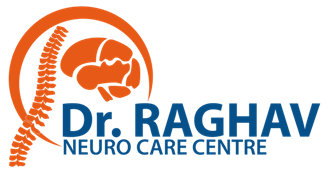- Home
- »
- Movement Disorder
- »
- Myoclonus
Myoclonus
Parkison's Disease
Tics
Chorea
Dystonia
Huntington's Disease
Myoclonus
Parkison's Disease
Botox Injections
Deep Brain Stimulation Surgery
Myoclonus is a neurological movement disorder characterized by sudden, brief, and involuntary muscle contractions or jerks. These muscle contractions can affect any part of the body and vary widely in their intensity and frequency. Understanding myoclonus involves exploring its causes, recognizing its symptoms, diagnosing the condition accurately, and exploring treatment options. This article provides a comprehensive overview of myoclonus, offering insights into each aspect of the disorder.
What is Myoclonus?
Myoclonus refers to rapid, involuntary muscle contractions or jerks that can occur in various body parts. These contractions can be isolated or occur in groups, and they may be triggered by specific stimuli or occur spontaneously. The severity of myoclonus can range from mild to debilitating, impacting daily activities and quality of life.
Causes of Myoclonus
Myoclonus can arise from a variety of causes, which can be broadly classified into several categories:
- Physiological Myoclonus: This type of myoclonus is considered normal and can happen in response to external stimuli, such as a loud noise or sudden movement. It may also occur during transitions between sleep and wakefulness, such as hypnic jerks.
- Essential Myoclonus: Essential myoclonus occurs without an identifiable underlying cause. It is thought to have a genetic component and often appears in families without other neurological abnormalities.
- Symptomatic Myoclonus: This form of myoclonus is associated with underlying conditions or neurological disorders. It may be linked to metabolic disorders, brain injuries, medication side effects, infections, or neurodegenerative diseases.
Symptoms of Myoclonus
The primary symptom of myoclonus is sudden, involuntary muscle jerks. The characteristics of myoclonus include:
- Brief and Rapid Contractions: Muscle contractions can affect any part of the body, including limbs, face, trunk, or vocal cords. These jerks are often brief but can vary in intensity and frequency.
- Single or Repetitive Jerks: Myoclonic jerks can occur as single events or in repetitive patterns, depending on the individual and the underlying cause.
- Triggering Factors: Myoclonus may be spontaneous or triggered by specific stimuli, such as light, noise, or sudden movements.
- Associated Sensory Symptoms: In some cases, myoclonus may be accompanied by sensory symptoms, such as a “shock” or “electric current” sensation in the affected area.
Diagnosis of Myoclonus
Accurate diagnosis of myoclonus requires a comprehensive evaluation:
- Medical History: A detailed medical history helps identify the onset, progression, and nature of symptoms, as well as any family history of myoclonus or related conditions.
- Physical Examination: This examination assesses muscle tone, coordination, and reflexes to evaluate the presence and distribution of myoclonus.
- Neurological Assessment: A thorough neurological assessment is necessary to rule out other potential causes and associated conditions.
- Electromyography (EMG): EMG records the electrical activity of muscles, providing insights into the timing and characteristics of muscle contractions during myoclonus.
- Neuroimaging: Brain imaging techniques, such as MRI or CT scans, help identify structural abnormalities or brain lesions that may be contributing to myoclonus.
Treatment Options for Myoclonus
Treatment for myoclonus depends on the underlying cause, symptom severity, and impact on daily life. Options include:
- Medications: Various medications can be prescribed to manage myoclonus, including anti-seizure drugs (e.g., clonazepam, valproic acid), muscle relaxants, and medications that regulate neurotransmitters in the brain.
- Botulinum Toxin Injections: Botox injections can be used to target specific muscles and temporarily reduce myoclonic jerks.
- Physical and Occupational Therapy: These therapies can improve muscle control, coordination, and functional abilities. Techniques such as relaxation exercises and sensory tricks may be beneficial.
- Deep Brain Stimulation (DBS): For severe myoclonus that does not respond to other treatments, DBS surgery may be considered. This involves implanting electrodes in the brain to modulate abnormal neural signals.
- Management of Underlying Conditions: Addressing any underlying conditions or triggers that contribute to myoclonus is crucial for effective symptom management.
Living with Myoclonus
Managing myoclonus involves:
- Adapting Daily Activities: Modifications to daily routines and environments can help accommodate the symptoms and improve quality of life.
- Emotional and Psychological Support: Coping with myoclonus may require psychological support and counseling to address the emotional impact of the disorder.
- Support Resources: Utilizing support groups, educational materials, and professional assistance can provide valuable resources and guidance.
Conclusion
Myoclonus is a neurological movement disorder characterized by sudden, involuntary muscle contractions or jerks. It can result from a range of causes, from normal physiological responses to underlying neurological conditions. While there is no one-size-fits-all cure, a variety of treatment options are available to manage symptoms and enhance quality of life. Consulting with a healthcare professional for accurate diagnosis and personalized treatment is essential for effective management of myoclonus.
- raghav.sem@gmail.com
- 7310644100
- Vipin Nursing Home, Krishna Nagar, Mathura
Quick Link
Departments
- Cervical
- Epilepsy
- Migraine
- Dementia
- Headache
- Parkinson's
- Muscle Disease
- Brain Stroke Messages
- Spine Related Disorders
- Neuropathy Amongst Other Disorder
